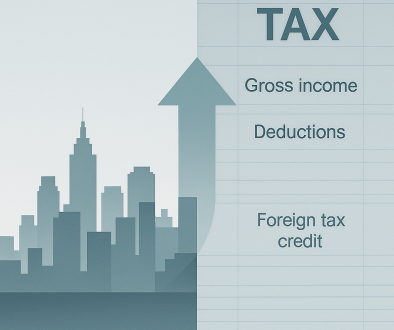Preparing for 2025: Key Antidumping Measures in Turkey Set for Expiry Reviews
I. Expiring Antidumping Duties in Turkey – What to Expect in 2025
As Turkey continues to maintain antidumping measures to protect its domestic industries, many existing antidumping duties are scheduled to expire in 2025. These expiring antidumping duties have been instrumental in stabilizing markets against low-priced foreign imports, but with expiration dates approaching, a renewal process known as the expiry review will likely commence for each affected measure. For foreign exporters, the expiration of these measures presents both a challenge and an opportunity.
During an expiry review, Turkish authorities evaluate whether the removal of existing duties could result in resumed dumping or continued harm to domestic industries. Participation in these reviews is crucial for foreign businesses, as it enables them to present evidence and arguments to avoid renewed or increased duties. By proactively joining the review process, exporters can present evidence to demonstrate that lifting these duties will not harm the domestic industry, potentially improving their competitive standing within the Turkish market. The expiry review process thus becomes a strategic moment for exporters to seek fairer conditions and secure long-term access to one of the region’s significant economies.
II. Overview of the Expiry Review Process for Antidumping Measures
As antidumping duties approach their expiration dates, Turkish authorities initiate an expiry review to determine whether these duties should be extended. The objective of an expiry review is to assess whether ending the antidumping measure would likely lead to continued or resumed dumping, which could harm Turkey’s domestic industries. The expiry review process follows a defined timeline, ensuring that decisions on existing duties are made systematically and with sufficient analysis (for a detailed overview of this topic please refer here).
a. Timeline and Duration of the Expiry Review Process in Turkey
The expiry review process begins as antidumping measures near their five-year expiration mark. Typically, domestic industries submit applications requesting a review within six months before the scheduled expiration of a duty. However, if evidence suggests a continued risk of dumping, Turkish authorities may independently initiate a review without an application from local industries.
Once the expiry review process starts, it generally lasts 12 to 18 months, depending on the complexity of the case and the volume of data submitted. During this period, the authorities collect information from both domestic industries and foreign exporters to evaluate whether lifting the measure would lead to renewed dumping. This assessment includes factors such as:
- Import volumes and their trends,
- Export prices compared to domestic prices,
- Market conditions in the Turkish industry for the affected product, and
- Evidence of economic harm or market distortion due to potential resumed dumping.
b. Importance of Participation for Exporters in Expiry Reviews
For foreign exporters, active participation in the expiry review is essential. By submitting relevant data, market analyses, and pricing justifications, exporters can demonstrate that their practices do not pose a threat to Turkey’s domestic industries. Failing to engage in this process may result in the automatic extension of duties, which could affect the exporter’s market access and competitiveness in Turkey. Timely submission of data, along with a solid defense, gives exporters a significant opportunity to influence the outcome of the review.
III. List of Antidumping Measures in Turkey Set to Expire in 2025
For foreign exporters looking to secure continued access to the Turkish market, it’s essential to know which antidumping measures are set to expire in 2025. Each expiring measure will likely undergo an expiry review, where exporters can present evidence and data to challenge the renewal of duties. Below is a list of key antidumping measures scheduled for expiry, including the product descriptions, relevant HS codes, country of origin, and the expected expiry date.
| Country of Origin | Product Description | HS Codes | Expiry Date |
|---|---|---|---|
| China | Instantaneous Gas Water Heaters | 8419.11.00.00.00 | 04.01.2025 |
| China | Aluminum foil of a thickness not exceeding 0.2 mm | 7607.11, 7607.19 | 04.01.2025 |
| Germany, China | Laminated flooring | 4411.13.90.00.11, 4411.14.90.00.11, 4411.92.90.00.11, 4411.93.90.00.11 | 04.01.2025 |
| China | Refillable Pocket Flint Lighters | 9613.20.00.00.19 | 07.01.2025 |
| China | Pocket Lighters, Gas Fueled, Non-refillable & Refillable | 9613.10.00.00.00, 9613.20.00.00.11, 9613.90.00.00.11 | 07.01.2025 |
| Indonesia, Malaysia, Pakistan, Thailand, Vietnam, China, India | Yarn of Man Made or Synthetic or Artificial Staple Fibers | 55.08, 55.09, 55.10, 55.11 | 22.05.2025 |
| China | Plastic Baby Products | 3923.21.00.00.11, 3924.10.00.00.21, 3926.90.97.90.16, 8414.10.81.90.00 | 18.08.2025 |
IV. Steps and Strategies for Exporters
As antidumping measures in Turkey approach their expiration, exporters have an opportunity to influence whether duties are renewed or lifted by actively participating in the expiry review process. Below are essential steps and strategies to guide exporters through the process effectively.
1. Registering as an Interested Party and Preparing Data Submissions
To participate, exporters should begin by registering as interested parties with the Turkish Ministry of Trade. This allows access to non-confidential information and enables exporters to submit relevant data that Turkish authorities will consider in their review. Key data typically includes:
- Sales volumes and pricing structures,
- Market share analysis,
- Economic conditions impacting the exporter’s industry.
2. Demonstrating Fair Pricing and Non-Threatening Competition
A critical part of any defense strategy is demonstrating that exports are priced fairly and align with market standards. Exporters should use clear pricing data to show consistency and competitive balance in Turkish markets. Additionally, a market analysis that highlights healthy competition and non-disruptive market presence can further counter claims of harm to domestic industries.
3. Showcasing Operational Improvements and Strategic Changes
Exporters may also strengthen their case by detailing improvements in production efficiency, technology, or supply chain adjustments that have reduced dumping risk. By emphasizing these operational changes, exporters demonstrate commitment to fair trade practices, reassuring Turkish authorities of stable, sustainable market behavior.
V. Common Challenges in the Expiry Review Process
While participating in an expiry review can offer exporters a chance to influence antidumping measures, the process often presents several challenges that require careful navigation. Understanding these common issues and knowing how to address them can improve an exporter’s chances of achieving a favorable outcome.
1. Complex Documentation Requirements
One of the most common challenges exporters face is meeting Turkey’s strict documentation standards. Authorities require detailed, accurate information on pricing, sales volumes, and market share. Any discrepancies or missing data can weaken the exporter’s case. Exporters should ensure that all documentation is organized and complete, ideally verified by a local representative familiar with Turkish regulatory standards.
2. Tight Submission Deadlines
Expiry reviews follow a set timeline, with limited windows for submitting data and responses. Missing a deadline can hinder an exporter’s ability to present a full defense, potentially resulting in the renewal of duties. Exporters should monitor deadlines closely and allocate ample time for compiling necessary information. Early preparation, especially for complex data submissions, is key to avoiding last-minute challenges.
3. Language and Communication Barriers
For foreign exporters, communication with Turkish authorities can be complicated by language differences and unfamiliar regulatory terms. Miscommunications or misunderstandings may lead to errors in documentation or missed steps in the process. Working with a bilingual representative or consultant familiar with Turkish trade practices can help bridge this gap, ensuring that communication is smooth and effective.
4. Difficulty in Proving Non-Disruptive Market Impact
Proving that exports do not disrupt Turkey’s domestic industry requires thorough market analysis and economic insight. Exporters may struggle to gather and present relevant data in a compelling way. A well-prepared economic analysis, including historical pricing trends and demand forecasts, can help demonstrate that the exporter’s presence does not harm the local industry.
VI. Conclusion
The upcoming expiry of various antidumping measures in Turkey marks a pivotal moment for foreign exporters aiming to maintain or improve their market access. The expiry review process provides a structured opportunity for exporters to present their case and challenge the continuation of duties, but it requires careful preparation, timely action, and a strong, evidence-backed defense. By understanding the timeline, participating actively, and addressing common challenges, exporters can influence the outcome of these reviews to safeguard their business interests.
Antidumping duties have significant implications for market dynamics, impacting pricing strategies, competitiveness, and long-term growth. As these measures reach their expiration, exporters have the chance to advocate for fairer conditions, providing evidence of non-disruptive practices and sustainable market behavior. This process not only protects exporters’ existing positions but also supports the broader goal of balanced and competitive trade between Turkey and international partners.
For exporters ready to engage in Turkey’s expiry review process, preparation is key. Thorough documentation, proactive communication, and a clear, data-driven defense can make all the difference. By approaching the expiry review process strategically, exporters can maximize their opportunity to shape a favorable market environment in Turkey for years to come.





